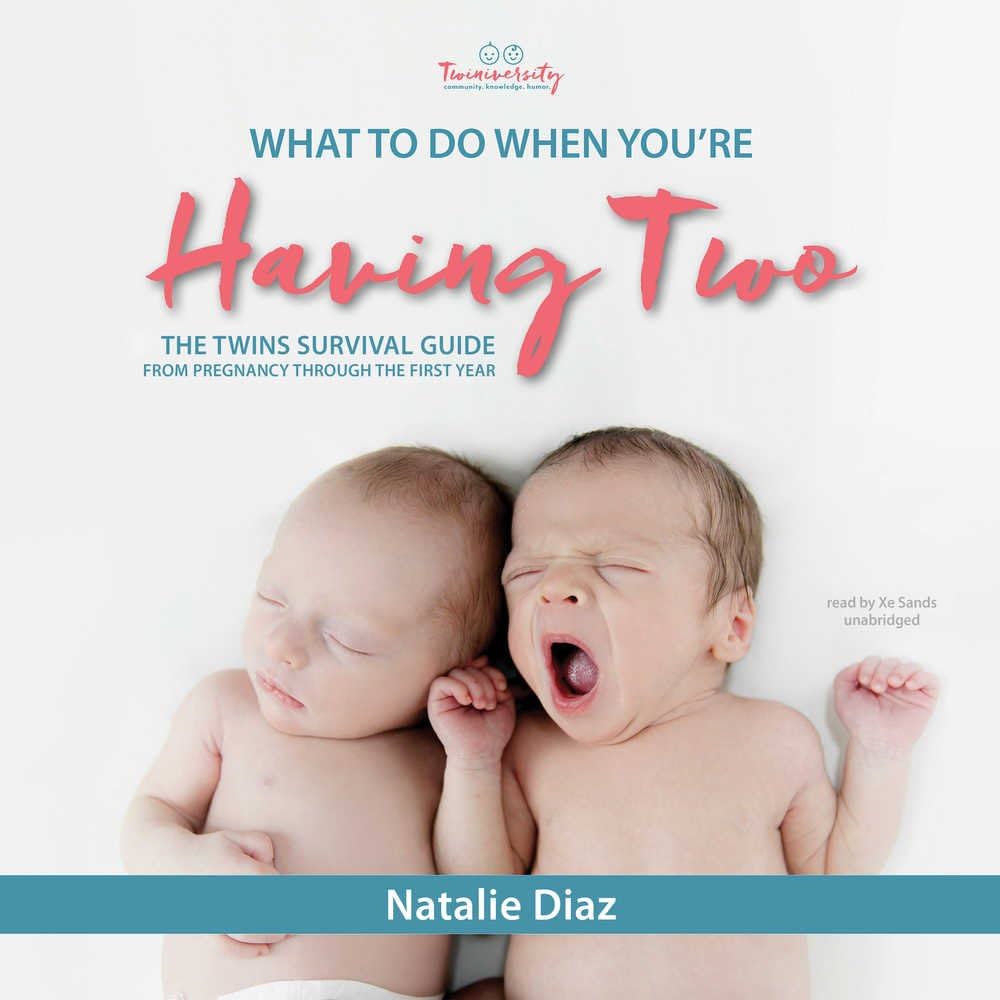Contents
- Essential Supplies For Your Newborn
- Setting Up A Baby-Friendly Environment
- Mastering Newborn Care Basics
- Coping With Sleep Deprivation
- Managing Common Newborn Challenges
- Nurturing Your Bond With Your Newborn
- Balancing Parenthood And Self-Care
- Building A Support Network
- Celebrating Milestones And Growth
- Frequently Asked Questions On Life With A Newborn
- Conclusion
Life with a newborn can be challenging, but also incredibly rewarding. This stage is filled with joy, sleepless nights, and a rollercoaster of emotions as you navigate the demands of caring for a helpless infant.
Finding a balance between taking care of your baby and prioritizing your own self-care can be a delicate process. However, with the right support system, time management skills, and patience, you can create a positive and fulfilling experience for both you and your newborn.
We will explore the various aspects of life with a newborn, from feeding and sleeping patterns to tips for maintaining your own well-being during this transformative chapter. So let’s dive in and discover how to make the most of this precious time with your little one.
Essential Supplies For Your Newborn
Preparing for the arrival of your newborn requires having essential supplies on hand. From diapers and blankets to bottles and baby clothes, ensure you are well equipped for life with your little one.
Nursery Essentials
- A crib: Your newborn will spend a significant amount of time sleeping, so a safe and comfortable crib is essential. Look for one that meets safety standards and has adjustable mattress heights.
- Mattress and fitted sheets: Invest in a firm mattress, preferably waterproof, with fitted sheets that fit securely on the crib. This will ensure a cozy and safe sleeping environment for your little one.
- Changing table: A dedicated space for changing diapers will make this task much more convenient. Choose a sturdy changing table with ample storage for diapers, wipes, and other essentials.
- Rocking chair or glider: Comfort is key during those late-night feeds and soothing sessions. A comfortable rocking chair or glider will provide support for both you and your baby.
- Storage solutions: Keep your nursery organized with storage bins, shelves, and baskets. This will help you easily find and access all the necessary items for your newborn.
Diapering Supplies
- Diapers: Stock up on disposable or cloth diapers, depending on your preference. Newborns go through a lot of diapers, so having an ample supply on hand is crucial.
- Wipes: Choose gentle and fragrance-free wipes for delicate baby skin. Keep a stash of wipes readily available for diaper changes.
- Diaper rash cream: Protect your baby’s sensitive skin with a reliable diaper rash cream. Look for one that is hypoallergenic and contains natural ingredients.
- Changing pad: A padded changing pad is a must-have for comfortable and hygienic diaper changes. Opt for one with a water-resistant cover for easy cleaning.
- Diaper pail or bin: Invest in a diaper pail or bin to control odor and keep your nursery smelling fresh. Look for one with a secure lid and easy-to-use disposal system.
Feeding Necessities
- Bottles and nipples: Whether you’re bottle-feeding or supplementing with formula, having a set of bottles and nipples is essential. Choose BPA-free options and consider different flow rates as your baby grows.
- Breast pump (if breastfeeding): If you plan to breastfeed, a breast pump can be a valuable tool for expressing milk and building a stash. Look for one that is comfortable, efficient, and easy to clean.
- Nursing pillow: A supportive nursing pillow will help you maintain a comfortable position while feeding your baby. Look for one with a removable cover for easy washing.
- Burp cloths: Babies often spit up after feeding, so having a stash of soft and absorbent burp cloths is essential for keeping both you and your baby clean and dry.
- Bibs: As your baby starts solids, bibs will help keep mealtime messes to a minimum. Look for bibs with a waterproof or wipeable surface for easy cleaning.
Clothing And Bedding Essentials
- Onesies and bodysuits: These versatile pieces are perfect for layering and provide easy access for diaper changes. Opt for soft, breathable fabrics like cotton.
- Sleepers: Cozy sleepers with snap or zipper closures are ideal for nighttime and naptime. Look for ones with built-in feet for added warmth.
- Swaddling blankets: Swaddling can help soothe a newborn and promote better sleep. Choose lightweight, stretchy blankets specifically designed for swaddling.
- Hats and mittens: Keep your newborn’s head and hands warm with soft hats and mittens, especially during colder months or in air-conditioned spaces.
- Bassinet or crib sheets: Have multiple sets of sheets on hand for quick changes, especially during those inevitable nighttime accidents.
Bathing And Grooming Items
- Baby bathtub: A specialized baby bathtub or a basin with a non-slip surface will make bath time safe and enjoyable. Look for one with a gentle incline for added support.
- Baby wash and shampoo: Choose gentle, tear-free, and mild baby wash and shampoo to keep your little one clean without causing irritation.
- Hooded towels: Soft and absorbent hooded towels are perfect for wrapping your newborn after a bath. Look for ones with cute designs and a generous size.
- Baby brush and comb: Keep your baby’s hair soft and tangle-free with a gentle brush and comb set. Opt for ones with soft bristles and rounded tips.
- Nail clippers or file: Trimming your baby’s nails can be a delicate task. Choose baby-specific nail clippers with rounded edges or a gentle nail file to keep those tiny nails in check.
Remember, every newborn is unique, so adjust your supplies based on your baby’s specific needs. With the right essentials, you’ll be ready to navigate the first months of your baby’s life with ease.
Setting Up A Baby-Friendly Environment
Creating a baby-friendly environment is essential for a smooth transition into life with a newborn. Consider incorporating soft lighting, soothing colors, and a calming ambiance to support your baby’s well-being.
Creating A Safe And Comfortable Nursery
When it comes to setting up a baby-friendly environment, creating a safe and comfortable nursery is essential. Here are some tips to help you get started:
- Choose a well-ventilated room with good natural light for the nursery.
- Opt for a sturdy crib that meets safety standards and has adjustable mattress height.
- Use a firm, snug-fitting mattress for the crib to reduce the risk of suffocation.
- Place the crib away from windows, blinds cords, and any hanging decorations.
- Install window guards or window stops to prevent accidents.
- Keep the crib free from pillows, blankets, and stuffed animals until your baby is at least one year old.
- Use a baby monitor so you can keep an eye on your little one while they sleep.
Designing A Functional Feeding Area
A functional feeding area is crucial for a smooth and stress-free feeding experience. Here’s what you need to consider:
- Choose a comfortable chair or glider with proper back support for yourself.
- Ensure the chair is at an appropriate height, allowing you to maintain a comfortable feeding position.
- Have a small table or shelf nearby to keep essentials like burp cloths, bibs, and feeding supplies within reach.
- Use a nursing pillow to provide additional support for both you and your baby during breastfeeding.
- If you’re using formula, have a designated area to prepare and store bottles, including a bottle warmer and sterilizer.
Organizing Diaper Changing Station
An organized diaper changing station can make diaper changes a breeze. Take a look at these suggestions:
- Set up a changing table or a dedicated changing area with a safe and secure changing pad.
- Stock up on diapers, wipes, diaper rash cream, and any other necessary supplies.
- Use organization bins or drawer dividers to keep everything neatly organized.
- Have a trash can or diaper pail nearby for easy disposal of dirty diapers.
- Keep a portable changing pad for on-the-go diaper changes.
Establishing A Soothing Sleep Environment
Creating a soothing sleep environment for your newborn can promote better sleep for both of you. Consider these tips:
- Use blackout curtains or shades to keep the room dark during naps and bedtime.
- Maintain a comfortable room temperature between 68-72°F (20-22°C).
- Use a white noise machine or a fan to drown out any disturbing noises.
- Consider swaddling your baby to provide a sense of security and promote better sleep.
- Create a consistent bedtime routine to signal it’s time to sleep.
Baby-Proofing Your Home
Throughout the development stages, your baby will start exploring their surroundings. Taking steps to baby-proof your home is crucial for their safety. Here are some important measures to consider:
- Install safety gates at the top and bottom of stairs to prevent falls.
- Keep small objects, sharp items, and choking hazards out of reach.
- Secure heavy furniture, TVs, and appliances to the walls to prevent tipping.
- Use outlet covers or baby-proofing covers to prevent electrical accidents.
- Place corner guards on furniture and secure cabinets with childproof locks.
By setting up a baby-friendly environment, you’re creating a safe and comfortable space for your little one to thrive. Following these guidelines will help you provide the best environment for their growth and development.
Mastering Newborn Care Basics
Mastering Newborn Care Basics is a comprehensive guide that provides essential information for navigating life with a newborn. From feeding and sleep schedules to diaper changing and soothing techniques, this resource is a must-have for new parents.
Understanding Newborn Sleep Patterns
Newborn babies tend to sleep for varying durations, typically between 14 to 17 hours a day. However, their sleep patterns are quite different from those of adults. It is important for parents to grasp the basics of newborn sleep patterns to ensure the well-being of both baby and caregiver.
Here are some essential points to understand:
- Newborn sleep is characterized by shorter sleep cycles of approximately 50 minutes to 3 hours, which include both active and quiet sleep phases.
- Babies often wake up during the night for feeding, as their small stomachs require frequent nourishment.
- It is common for newborns to exhibit irregular sleep patterns, with no clear distinction between day and night. This can contribute to sleep deprivation for parents, making it crucial to establish a routine.
Establishing A Feeding Routine
Establishing a feeding routine is vital for nurturing a healthy newborn. By creating a structured schedule, parents can both satisfy their baby’s hunger needs and establish healthy eating habits. Here are some key considerations for setting up a feeding routine:
- Breastfeeding or formula feeding should ideally occur every 2 to 3 hours, depending on the baby’s cues. It is important to feed on demand to ensure the baby receives sufficient nourishment.
- During nighttime feedings, aim to keep the environment tranquil and calm, with minimal stimulation. This helps the baby differentiate between daytime and nighttime.
- It is crucial to seek professional guidance from a healthcare provider for any specific concerns or questions regarding feeding routines.
Techniques For Soothing A Fussy Baby
Caring for a fussy baby can be challenging, but there are various techniques that can help soothe them and provide comfort. Here are some effective techniques for calming a fussy baby:
- Swaddling: Gently wrapping the baby in a blanket can mimic the womb environment and make them feel safe and secure.
- Infant massage: Massaging the baby’s body with gentle strokes can promote relaxation and alleviate discomfort.
- White noise: Creating a consistent background noise, such as a fan or a white noise machine, can help mask sudden sounds and lull the baby to sleep.
Proper Bathing And Skincare
Bathing your newborn requires proper care to ensure their safety and hygiene. Here are some tips for bathing and skincare:
- Sponge baths: A sponge bath is recommended until the baby’s umbilical cord stump falls off. Use a soft cloth or sponge to clean their body, avoiding excessive water exposure.
- Water temperature: Ensure the water is warm but not hot, checking it with your elbow or a bath thermometer to prevent scalding.
- Gentle skincare: Use mild, hypoallergenic baby products to prevent skin irritation and dryness.
Diaper Changing Tips And Tricks
Diaper changing is a fundamental aspect of newborn care. Mastering these tips and tricks can make the process efficient and hygienic:
- Be prepared: Gather all necessary supplies, such as clean diapers, wipes, and diaper cream, before starting the changing process.
- Clean technique: Wipe the baby’s bottom gently using unscented wipes, ensuring thorough cleaning to prevent rashes or infections.
- Diaper fit: Adjust the diaper to fit snugly without being too tight or too loose. This helps prevent leaks and discomfort for the baby.
By understanding newborn sleep patterns, establishing a feeding routine, knowing techniques to soothe a fussy baby, practicing proper bathing and skincare, and utilizing diaper changing tips and tricks, parents can navigate the challenges of caring for a newborn with confidence and nurture their baby’s well-being.
Coping With Sleep Deprivation
With a newborn, coping with sleep deprivation can be challenging. Find strategies to manage fatigue, such as establishing a sleep routine, taking short naps, and seeking support from loved ones. Discover effective ways to navigate this new chapter of life.
Ah, sleep deprivation, the hallmark of life with a newborn. Being a new parent can be an exhilarating experience filled with love and joy, but let’s face it, the lack of sleep can take its toll. Luckily, there are strategies you can employ to cope with sleep deprivation and ensure that you and your baby get the rest you need.
Strategies For Managing Sleep Deprivation:
- Creating a sleep schedule for you and your baby: Establishing a routine can help your baby develop good sleep habits and allow you to maximize your own rest. Consistency is key here. Set fixed bedtimes for both you and your little one, and try to stick to them as much as possible. It may take some time for your baby to adjust, but eventually, you’ll find a rhythm that works for both of you.
- Maximizing rest during your baby’s nap times: When your baby is napping, it’s essential to make the most of that time and grab some sleep for yourself. Resist the temptation to tackle household chores or catch up on other tasks. Instead, prioritize rest and relaxation. Find a comfortable spot, close your eyes, and take a brief nap. Trust us, those dishes can wait!
- Seeking support from your partner or family members: Parenthood is a team effort, and now is the time to lean on your support network. If your partner is available, take turns getting up during the night to tend to your little one. This way, both of you can get some uninterrupted sleep. If you have family members or close friends who are willing to lend a hand, don’t hesitate to ask for their assistance. Remember, it takes a village!
- Self-care tips for new parents: It’s easy to neglect your own needs when you’re busy caring for a newborn, but self-care is crucial for your well-being. Take breaks whenever possible, even if it’s just a few minutes to enjoy a cup of tea or read a book. Eat nutritious meals, stay hydrated, and try to fit in some light exercise, such as gentle stretches or walks. Remember, taking care of yourself allows you to better care for your baby.
With these strategies in your arsenal, you can navigate the sleep-deprived days of early parenthood with a bit more ease. Remember to be patient with yourself and your baby, as sleep patterns will evolve over time. And most importantly, cherish the precious moments with your little one, because before you know it, they’ll be sleeping through the night.
Managing Common Newborn Challenges
Explore effective strategies for managing common challenges that arise when caring for a newborn. Discover helpful tips for navigating life with your little one, ensuring a smooth transition and fostering a positive environment. Gain confidence in handling the unique demands of a newborn with ease and simplicity.
Dealing With Diaper Rash And Skin Irritations:
Diaper rash is a common challenge that many parents face with their newborns. This irritating condition can cause discomfort and redness in the baby’s diaper area. Here’s how you can manage diaper rash and other skin irritations:
- Change diapers frequently, ensuring that your baby’s skin stays clean and dry.
- Use a gentle, hypoallergenic cleanser or baby wipes to cleanse the diaper area during each diaper change.
- Apply a diaper cream or ointment containing zinc oxide to create a protective barrier on the skin.
- Give your baby some diaper-free time to allow their skin to breathe and heal.
- Avoid using harsh soaps, scented products, or rough materials that can further irritate the skin.
Addressing Feeding Difficulties And Colic:
Feeding difficulties and colic can be distressing for both the baby and parents. If you’re experiencing challenges in this area, here are some tips to help:
- Consult a lactation specialist or pediatrician to address any breastfeeding concerns or difficulties.
- Consider trying different breastfeeding positions, such as the football hold or side-lying position, to see what works best for your baby.
- For bottle-fed babies, ensure that the nipple flow is appropriate for their age and needs.
- Burp your baby frequently during and after feeding to reduce gas and prevent discomfort.
- If your baby has colic, try soothing techniques like gentle rocking, swaddling, or playing soothing sounds to provide comfort.
Treating Common Illnesses And Discomforts:
Newborns are susceptible to common illnesses and discomforts such as colds, congestion, and minor fever. Here’s how you can help your baby feel better:
- Keep the room well-ventilated and maintain a comfortable temperature to ease congestion.
- Use a baby nasal aspirator or saline drops to clear nasal congestion.
- Provide plenty of fluids, as dehydration can worsen your baby’s condition.
- Consult your pediatrician regarding appropriate medicine or remedies for common ailments like fever or cough.
- Offer extra snuggles, love, and attention to keep your baby comforted during their illness.
Soothing Teething Pain And Emerging Teeth:
Teething can be a challenging phase for both babies and parents. Here are some tips to ease your baby’s teething discomfort:
- Offer teething toys or chilled teething rings for your baby to chew on.
- Gently massage their gums with a clean finger or a cool, damp cloth.
- Consider using over-the-counter teething gels or natural remedies recommended by your pediatrician.
- Provide extra cuddles and attention to distract your baby from the teething pain.
- Keep an eye out for any signs of teething-related illnesses and consult your pediatrician if necessary.
Managing Spit-Up, Reflux, And Gas:
Spit-up, reflux, and gas are common challenges that newborns face. To help manage these issues, try the following:
- Burp your baby after each feeding to release any trapped gas or air.
- Feed your baby in an upright position to reduce the likelihood of spit-up or reflux.
- Avoid overfeeding your baby or feeding them too quickly to minimize the chances of excessive gas.
- Keep your baby upright for at least 30 minutes after feeding to allow digestion and reduce reflux.
- Consult your pediatrician if you notice persistent or severe symptoms of spit-up, reflux, or gas.
Remember, each baby is unique, and it may take some trial and error to find the best solutions for your little one. Stay patient, observe your baby’s cues, and seek professional advice when needed to ensure their well-being.
Nurturing Your Bond With Your Newborn
Bonding with your newborn is a precious journey, filled with tender moments and discovery. Embrace life with your little one, cherishing every interaction and nurturing the special connection between you both.
Techniques For Bonding With Your Baby:
- Engaging in eye contact: Look into your baby’s eyes and hold their gaze. This helps to establish a deep connection and build trust.
- Gentle touch and cuddling: Regular physical contact, such as cuddling and gentle strokes, promotes feelings of security and comfort for your baby.
- Talking and singing: Regularly communicate with your baby by talking, singing, or cooing. This helps them develop language skills and create a strong bond with you.
- Babywearing: Using a baby carrier or sling allows you to carry your baby close to you, promoting bonding and providing a sense of security.
- Synchronized breathing: Take deep breaths together with your baby. This simple technique helps you both relax and fosters a sense of connection.
Importance Of Skin-To-Skin Contact:
Skin-to-skin contact is an essential aspect of bonding with your newborn. This practice, also known as kangaroo care, involves holding your baby against your bare chest. Here’s why it matters:
- Promotes bonding: Skin-to-skin contact releases oxytocin, a hormone that strengthens the bond between parent and baby.
- Regulates body temperature: Your warm body helps regulate your baby’s body temperature, keeping them comfortable and secure.
- Enhances breastfeeding: Skin-to-skin contact stimulates your baby’s natural instincts to root and breastfeed. It can also increase milk production.
- Reduces stress: It has been shown that skin-to-skin contact reduces stress hormones in both parents and babies, helping everyone feel more relaxed.
- Boosts immune system: The exchange of beneficial bacteria during skin-to-skin contact can help strengthen your baby’s immune system.
Engaging In Stimulating Activities And Playtime:
Playing with your newborn not only creates wonderful memories but also aids in their development. Here are some engaging activities to try:
- Tummy time: Place your baby on their tummy to help strengthen their neck and shoulder muscles. This activity also encourages them to explore and reach milestones.
- Sensory play: Provide your baby with safe toys that stimulate their senses, such as rattles, soft toys with different textures, or musical mobiles.
- Reading aloud: Even at a young age, babies benefit from hearing stories and listening to your voice. Choose age-appropriate books and read aloud to them.
- Singing and dancing: Sing nursery rhymes or play music and dance gently with your baby. This helps develop their listening skills and coordination.
Creating A Consistent Caregiving Routine:
Establishing a consistent caregiving routine is vital for your baby’s emotional well-being. Consider the following:
- Regular feeding and sleep schedule: Babies thrive on routine, so try to establish consistent feeding and sleep times to provide them with a sense of security.
- Diaper changes and bath time: Consistency in these daily care activities helps your baby feel safe and protected.
- Responding promptly to their needs: Promptly attending to your baby’s needs, such as hunger, discomfort, or emotional distress, builds their trust in you as their caregiver.
- Predictable daily activities: Engage in regular activities like playtime, outdoor walks, or family mealtime, as babies thrive when they know what to expect.
Establishing Healthy Attachment And Trust:
Building a healthy attachment and trust between you and your newborn is crucial. Here’s how to foster this:
- Responding to cues: Pay close attention to your baby’s signals and respond promptly and lovingly. This helps them develop a secure attachment.
- Encouraging exploration: Allow your baby to explore their surroundings while offering a safe and supportive environment. This builds their confidence and trust in you.
- Co-sleeping safely: Sleeping near your baby, following safe co-sleeping guidelines, promotes closeness and reassurance. It also facilitates nighttime bonding during feedings.
Remember, every baby is unique, so find what works best for you and your little one. Enjoy the journey of nurturing your bond and watching it grow stronger each day.
Balancing Parenthood And Self-Care
Balancing the demands of parenthood and self-care can be challenging, especially with a newborn. Discover effective strategies for nurturing your well-being while caring for your little one.
Welcoming a newborn into your life is an exhilarating and life-changing experience. As you navigate the beautiful chaos of parenthood, it’s essential to find balance and make time for self-care. Here are some helpful tips on how to achieve harmony between caring for your little one and nurturing your own well-being.
Setting Realistic Expectations And Priorities:
- Understand that as a new parent, your priorities will shift, and your time and energy may be mostly dedicated to your baby.
- Accept that certain tasks or activities may need to take a backseat for a while, and that’s okay.
- Focus on the essentials, such as feeding, soothing, and bonding with your baby, while gradually incorporating self-care into your routine.
Managing Parental Guilt And Self-Doubt:
- Remind yourself that it’s natural to experience moments of doubt and guilt as a new parent.
- Recognize that you are doing your best and that taking care of your own physical and mental well-being is crucial for both you and your baby.
- Practice self-compassion and allow yourself to make mistakes.
Finding Time For Self-Care Activities:
- Look for small windows of opportunity throughout the day to indulge in self-care activities.
- Take advantage of nap times or when your partner or family members can watch the baby for a short while.
- Prioritize activities that replenish your energy, such as taking a hot bath, reading a book, going for a walk, or practicing mindfulness exercises.
Seeking Support From Friends And Family:
- Reach out to your support network for help and guidance when needed.
- Trust in the strength and love of your relationships to provide assistance and comfort during challenging times.
- Delegate tasks or ask for assistance in order to carve out time for self-care.
Embracing The Joys Of Parenthood:
- Celebrate the precious moments and the love that surrounds you and your baby.
- Cherish the milestones, even the small ones, as they are a testament to your growing bond.
- Embrace the journey of parenthood, with all its ups and downs, and find joy in the precious time spent with your little one.
Remember, it’s not selfish to prioritize self-care while raising a newborn. Taking care of your own well-being allows you to show up as the best version of yourself for your baby. By finding the right balance and nurturing yourself alongside your little one, you can create a harmonious and fulfilling life with your newborn.
Building A Support Network
Building a strong support network is crucial for navigating life with a newborn. Surrounding yourself with caring friends and family members can provide the emotional and practical help needed during this transformative period.
Welcoming a newborn into your life can be both exciting and challenging. It’s essential to have a support network in place to navigate this new chapter successfully. Building a network of fellow parents and accessing resources can provide the guidance and reassurance you need during this time.
Here are some effective ways to establish and grow your support network:
Joining Parenting Groups And Communities:
- Parenting groups and communities offer a wealth of support and advice from individuals who have been through the same experience.
- Connecting with other parents in similar situations can provide a sense of camaraderie and understanding.
- These groups often meet in person or online, giving you opportunities to engage and share experiences.
Seeking Advice From Experienced Parents:
- Experienced parents have already been through the trials and joys of raising a newborn.
- Their insight and wisdom can be invaluable in providing guidance and offering solutions to common challenges.
- Reach out to experienced parents, whether they are friends, family members, or acquaintances, for their valuable advice and support.
Connecting With Other New Moms And Dads:
- Connecting with other new moms and dads who are going through the same experiences can help you feel less alone.
- Engaging in conversations with other parents can offer insights and practical tips for navigating challenges.
- Consider joining parent-led playgroups or attending local parenting meet-ups to meet and connect with other new parents.
Utilizing Online Resources And Forums:
- The internet is a treasure trove of information and resources for new parents.
- Online forums and communities provide a platform for asking questions, seeking advice, and sharing experiences with other parents worldwide.
- Take advantage of online resources like blogs, websites, and social media groups focused on parenting to expand your knowledge and gain support.
Attending Parenting Classes And Workshops:
- Parenting classes and workshops offer a structured learning environment where you can gain valuable knowledge and skills.
- These classes cover a wide range of topics, from breastfeeding and baby care to sleep training and developmental milestones.
- Attending these classes allows you to connect with other parents while learning from experts in the field.
Remember, building a support network doesn’t happen overnight. It takes time, effort, and open-mindedness to connect with others and seek out the resources that will benefit you and your newborn. Embrace these opportunities to connect with fellow parents and access the wealth of knowledge and support available, as it can make all the difference in navigating the beautiful yet challenging journey of life with a newborn.
Celebrating Milestones And Growth
Celebrate the milestones and growth in life with your newborn, cherishing every precious moment along the way. Embrace the joy and challenges of parenthood with the support and love that surround you.
Welcoming a newborn into your life is an incredible experience filled with joy, love, and excitement. As your little one starts their journey of growth and development, it’s important to celebrate each milestone along the way. From your baby’s first smile to their first steps, here are some ways to commemorate their journey and create lasting memories in the process.
Tracking Your Baby’S Growth And Development:
- Baby journals: Keeping a journal allows you to track your baby’s growth and record important milestones. Include details such as their first words, favorite toys, and funny anecdotes.
- Growth charts: Monitoring your baby’s physical growth is easy with a growth chart. Measure their height and weight regularly to ensure they are developing at a healthy rate.
- Developmental milestones: Keep track of your baby’s developmental milestones such as rolling over, crawling, and sitting up. These milestones are a testament to their growth and progress.
Celebrating Important Milestones:
- First smile: Your baby’s first smile is a magical moment that will warm your heart. Capture this milestone with a special photo or video to cherish forever.
- First solid food: Introducing your little one to solid foods is a significant milestone. Celebrate by capturing their reaction or hosting a small gathering to mark this special occasion.
- First birthday: Your baby’s first birthday is a major milestone for both the parents and the little one. Plan a memorable celebration, complete with a cake smash photoshoot and meaningful gifts.
Capturing Precious Moments With Photographs:
- Newborn photoshoot: Hire a professional photographer to capture beautiful images of your newborn in their first few weeks of life. These precious photos will be treasured for a lifetime.
- Monthly milestone photos: Take monthly photos of your baby to document their growth and development. Use props such as age blocks or a milestone blanket to make each photo unique.
- Candid moments: Don’t forget to capture natural and candid moments throughout your baby’s journey. Whether it’s a spontaneous giggle or a peaceful nap, these photos will capture the essence of their personality.
Creating Lasting Memories:
- Keepsakes: Create keepsakes that will hold sentimental value as your baby grows. This could include a lock of hair, their first outfit, or a special toy that carries significance.
- Memory books: Compile photos, notes, and mementos in a memory book that tells the story of your baby’s first years. This book will be a cherished keepsake for the entire family.
- Family traditions: Start or continue family traditions that revolve around celebrating your baby’s milestones. Whether it’s blowing out candles on their birthday cake or going on an annual family vacation, these traditions will create lasting memories for your child.
Becoming a parent is an incredible journey filled with love, growth, and milestones. Embrace each stage with open arms and savor the beauty of your baby’s growth and development. By celebrating these milestones and capturing precious moments along the way, you’ll create lasting memories that will be cherished for a lifetime.

Credit: www.cushii.com
Frequently Asked Questions On Life With A Newborn
What Is The Hardest Week With A Newborn?
The first week with a newborn can be the toughest, as you adjust to a new routine and lack of sleep.
How Do You Have A Normal Life With A Newborn?
To have a normal life with a newborn, establish a routine, get support from family and friends, prioritize self-care, and seek help when needed.
Does Life With A Newborn Get Easier?
Yes, life with a newborn does get easier as they grow and develop.
Are The First 3 Months With Baby The Hardest?
The first three months with a baby can be challenging, but it varies for each parent.
Conclusion
Being a parent to a newborn is an overwhelming but incredible experience. From the sleepless nights to the endless diaper changes, every moment is full of both joy and challenges. As each day passes, you become more in tune with your baby, learning their cues and rhythms.
It’s a time of immense growth, not only for your little one but for yourself as well. The bond you develop with your newborn is unparalleled, and you find yourself cherishing even the smallest milestones. While there may be moments of exhaustion and frustration, the love and fulfillment that comes from nurturing a newborn far outweighs any challenges.
As you navigate this new chapter of life, remember to give yourself grace and seek support when needed. Cherish every precious moment with your baby, for these years pass by in the blink of an eye. Embrace the chaos and embrace the love that comes with life with a newborn.











